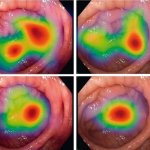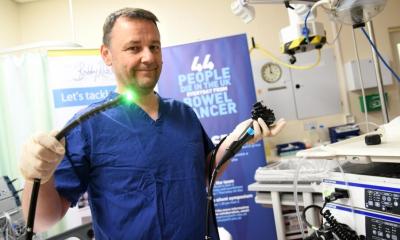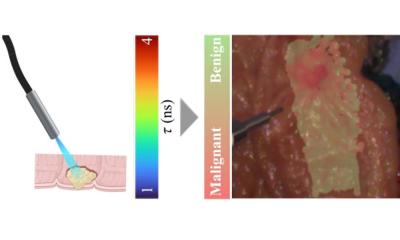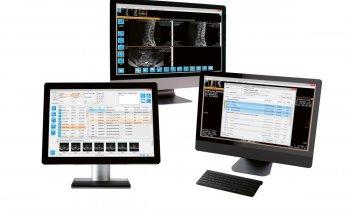
News • Adenoma detection rate
Using AI support makes endoscopists lose skills, study finds
The introduction of artificial intelligence (AI) to assist colonoscopies is linked to a reduction in the ability of endoscopists (health professionals who perform colonoscopies) to detect precancerous growths (adenomas) in the colon without AI assistance, according to new research.
The researchers published their findings in The Lancet Gastroenterology & Hepatology.
Colonoscopy enables detection and removal of adenomas, leading to prevention of bowel cancer. Numerous trials have shown the use of AI to assist colonoscopies increases the detection of adenomas, generating much enthusiasm for the technology. However, there is a lack of research into how continuous use of AI affects endoscopist skills with suggestions it could be either positive, by training clinicians, or negative, leading to a reduction in skills.
Author Dr Marcin Romańczyk, Academy of Silesia (Poland), says, “To our knowledge this is the first study to suggest a negative impact of regular AI use on healthcare professionals' ability to complete a patient-relevant task in medicine of any kind. Our results are concerning given the adoption of AI in medicine is rapidly spreading. We urgently need more research into the impact of AI on health professional’s skills across different medical fields. We need to find out which factors may cause or contribute to problems when healthcare professionals and AI systems don’t work well together, and to develop ways to fix or improve these interactions.”
Recommended article

Article • Diagnostic assistant systems
AI in endoscopy: helper, trainer – influencer?
Artificial intelligence (AI) is increasing its foothold in endoscopy. Although the algorithms often detect pathologies faster than humans, their use also generates new problems. PD Dr Alexander Hann from the University Hospital Würzburg points out that the use of AI helpers can affect not only the reporting of findings – but also the person making the findings.
The study took place at four colonoscopy centres in Poland between September 2021 and March 2022. Regular AI use was introduced at the centres at the end of 2021 after which colonoscopies were randomly done either with or without AI assistance. During this time 1,443 colonoscopies were conducted without AI; 795 before the introduction of regular AI use and 648 after AI implementation. The colonoscopies were performed by 19 experienced endoscopists who had conducted over 2,000 colonoscopies each.
Although AI continues to offer great promise to enhance clinical outcomes, we must also safeguard against the quiet erosion of fundamental skills required for high-quality endoscopy
Omer Ahmad
The average rate of adenoma detection at non-AI assisted colonoscopies significantly decreased from 28.4% (226/795) before AI exposure to 22.4% (145/648) after AI exposure, corresponding to a 20% relative and 6% absolute reduction in adenoma detection rate. In the AI-assisted colonoscopies there was a 25.3% (186/734) adenoma detection rate.
Author Prof Yuichi Mori, University of Oslo (Norway) says, “These results pose an interesting question about previous randomised controlled trials which found AI-assisted colonoscopy enabled a higher adenoma detection rate than non-AI assisted colonoscopy. It could be the case that non-AI assisted colonoscopy assessed in these trials is different from standard non-AI assisted colonoscopy as the endoscopists in the trials may have been negatively affected by continuous AI exposure.”
The authors acknowledge some limitations, including that the observational nature of the study means that factors other than the implementation of AI use may have influenced the findings. Additionally, as the study was conducted with experienced endoscopists this may limit its generalisation to all endoscopists - further studies with less experienced health professionals are needed to see if long term AI tool use has a larger impact on their ability to detect of adenomas without AI.
Writing in a linked Comment, Dr Omer Ahmad, University College London, who was not involved in the study, said: "These findings temper the current enthusiasm for rapid adoption of AI based technologies [...] and highlight the importance of carefully considering possible unintended clinical consequences. Although previous experimental studies have alluded to negative modification of behaviour after AI exposure, the study by Budzyń and colleagues provides the first real-world clinical evidence for the phenomenon of deskilling, potentially affecting patient-related outcomes. [...] Although AI continues to offer great promise to enhance clinical outcomes, we must also safeguard against the quiet erosion of fundamental skills required for high-quality endoscopy.”
Source: The Lancet
14.08.2025










